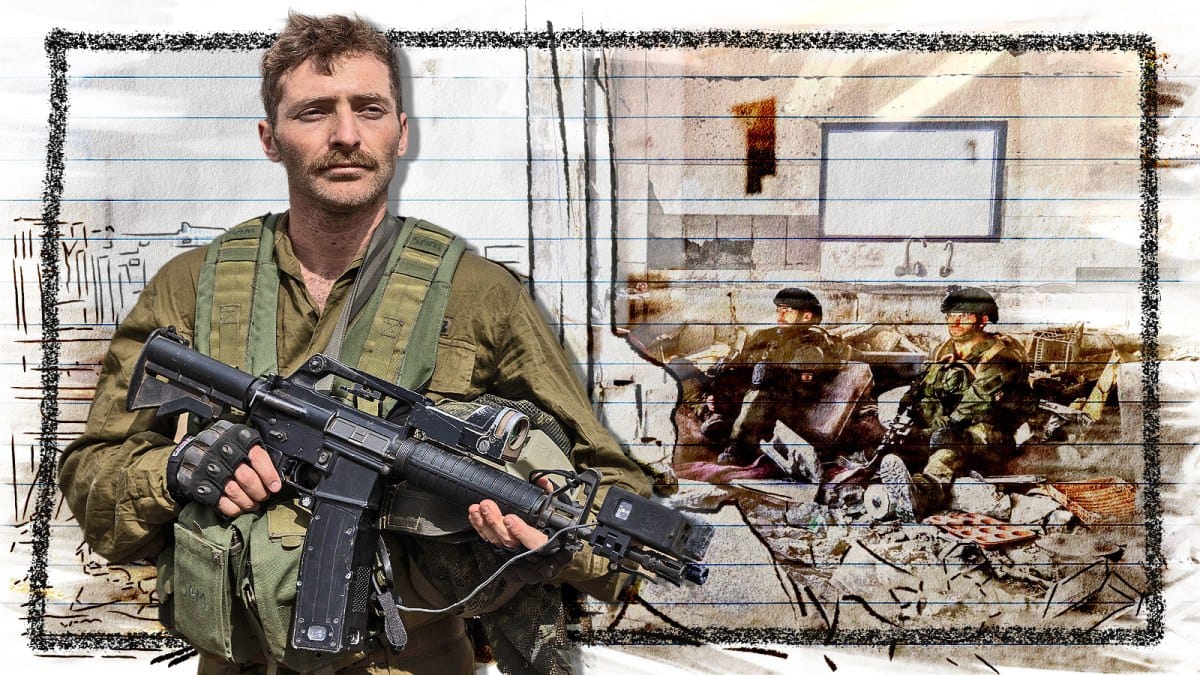Brits serving in the Israeli military can now face UK criminal charges - and that should terrify anyone who still tolerates impunity for Gaza

In a seismic, long-overdue shift, British recognition of a Palestinian state has finally changed the legal playing field. Because the UK formally recognised Palestine on 21 September 2025, British nationals and dual nationals who travel to serve in the Israel Defence Forces (IDF) in Gaza or the West Bank may now be criminally liable under UK law - for the first time. That is not a hypothetical: lawyers on the ground say the law can, and should, be used to hold to account those who take part in a military campaign that independent bodies now describe as among the gravest human-rights catastrophes of our time.
The legal turning point - what changed, and why it matters
The simple catalyst is state recognition. When the UK joined other nations in recognising the State of Palestine on 21 September 2025, it created a legal fault-line: once Palestine is a state in the eyes of UK law, British nationals fighting for another state that is at war with Palestine risk falling foul of the Foreign Enlistment Act 1870 - the century-and-a-half-old statute that makes it an offence for a British subject to accept military service with a foreign state which is at war with another state at peace with the UK. Legal practitioners describing the change say the “legal landscape has shifted” and strongly advise British nationals serving in the IDF to stop and return home.
This is a meaningful legal route for accountability because it anchors the question of British recruits’ conduct in domestic criminal law - not only as an abstract moral issue, but as something that can be investigated, charged and prosecuted in UK courts.
Which laws can be used - and how strong are they?
There are three main strands that now matter for British accountability:
1. The Foreign Enlistment Act 1870. This old statute - rarely used in practice but still on the books - is squarely implicated once Palestine is a recognised state. Prosecutors could argue that a British person who takes up arms for Israel in Gaza or the West Bank has “accepted engagement” with a foreign state at war with Palestine, and thereby committed an offence under the Act. The law has limits (it’s old, rarely enforced, and penalties and application are discretionary), but it suddenly becomes a live tool.
2. The International Criminal Court Act 2001. That Act incorporates the Rome Statute crimes - genocide, crimes against humanity and war crimes - into UK domestic law. If there is evidence that individuals committed such offences while deployed with the IDF, prosecutors can rely on the ICC Act to charge domestic offences.
3. The Geneva Conventions Act 1957. The Act makes “grave breaches” of the Geneva Conventions prosecutable in UK courts and recognises universal jurisdiction for such crimes, meaning alleged grave breaches committed abroad can be investigated and prosecuted at home. Taken together with the ICC Act, the Geneva Conventions Act provides a direct route for UK law to answer for atrocities documented in Gaza.
Why this is not just legal hair-splitting - the human reality
This is not academic: the context in which these legal tools may be deployed is a humanitarian catastrophe documented by multiple international bodies. Credible casualty figures put the Palestinian death toll in Gaza in the hundreds of thousands, with many injured since the genocide really took grip after the 7th of October, 2023. In September 2025 a UN Commission concluded that Israel’s conduct in Gaza amounted to genocide - a finding that dramatically heightens the urgency for accountability. These are not rhetorical flourishes; they are the factual backdrop that turns “service in a foreign army” into potential complicity in the gravest of crimes.

The dossier: 240 pages - ten British nationals - and a UK obligation to investigate
This spring, a 240-page dossier produced by a team of leading human-rights lawyers - including Michael Mansfield KC and colleagues at the Public Interest Law Centre (PILC) and the Palestinian Centre for Human Rights - was handed to the Metropolitan Police’s War Crimes Team. It alleges war crimes and crimes against humanity by ten British nationals who served with the IDF in Gaza, including targeted killings of civilians and attacks on hospitals and aid workers. The submission explicitly relied on the ICC Act and the Geneva Conventions Act as domestic forums for these allegations. The Met has confirmed the dossier is being assessed. If authorities now act on that file, recognition of Palestine removes a convenient legal dodge that has, until now, allowed some to argue there was no UK legal footing for prosecutions.
Limits, defences and caveats - the terrain is promising but imperfect
A few important legal realities temper how immediate prosecutions will be:
- The Foreign Enlistment Act cannot be applied retrospectively; it won’t reach British volunteers who served before recognition. That said, for anyone joining or continuing service after 21 September 2025, the legal risk has materially changed.
- The Foreign Enlistment Act is old and rarely enforced; courts and prosecutors will need to make new law by applying it in this modern context. Some barristers stress that its antiquity and uncertain practical reach mean the ICC and Geneva routes are likely to carry more prosecutorial weight.
Even with caveats, the weight of domestic and international law is now firmly in favour of investigation - and the political and moral imperative is overwhelming.
What this means for British recruits, the IDF and the politics at home
Practically: any British national or dual national currently serving with the IDF in Gaza or the West Bank is exposed to the risk of UK criminal investigation - not just under the arcane Foreign Enlistment Act but under modern statutes that implement the Rome Statute and Geneva protections. Legal advisers already warn recruits to come home to avoid criminal jeopardy.
Politically: recognition of Palestine clears a rhetorical and legal fog that previously allowed UK officials to plead impotence. No longer can ministers hide behind diplomatic tests: the recognition binds the UK to the legal and moral architecture that protects civilians and criminalises the worst breaches. Expect pressure on the Metropolitan Police to move from “assessment” to an active investigation; expect human-rights organisations and bereaved Palestinian families to pursue every domestic avenue for justice.
For the IDF and those who recruit foreign fighters: the UK move signals a hardening of international opinion. Recruit programs that openly target diasporic communities - from Mahal to other volunteer tracks - will now be scrutinised not only by activists and journalists but by criminal investigators armed with domestic law.

What justice-minded readers should do next
- Support legal accountability. Donate to and share the work of groups that produced the dossier (PILC, PCHR) and follow developments at the Metropolitan Police’s War Crimes Team. The UK’s obligation to investigate is not optional.
- Amplify the UN findings and the human record. The OHCHR’s Commission of Inquiry and UN health agencies have documented mass death, displacement, starvation tactics and destruction of civilian infrastructure. Those findings are the moral and evidentiary centerpieces for domestic action.
- Press MPs and ministers to ensure proper, resourced investigations. Recognition of Palestine cannot be a symbolic photo-op; it must be followed by concrete measures to secure accountability, reopen humanitarian channels, and support survivors.
Final Thoughts - recognition was a legal turning point; accountability must follow
The UK’s recognition of Palestine on 21 September 2025 was a crucial, overdue act of political clarity. But recognition is only the beginning. It has a practical, enforceable consequence: it creates domestic legal pathways to hold to account British nationals who participate in a campaign widely documented as catastrophic for civilians in Gaza. That possibility should be seized without fear or favour. If law and politics are to mean anything, they must be used to protect the oppressed, to investigate alleged crimes, and to end impunity. The victims in Gaza - the hundreds of thousands murdered, the wounded and displaced - deserve nothing less.
